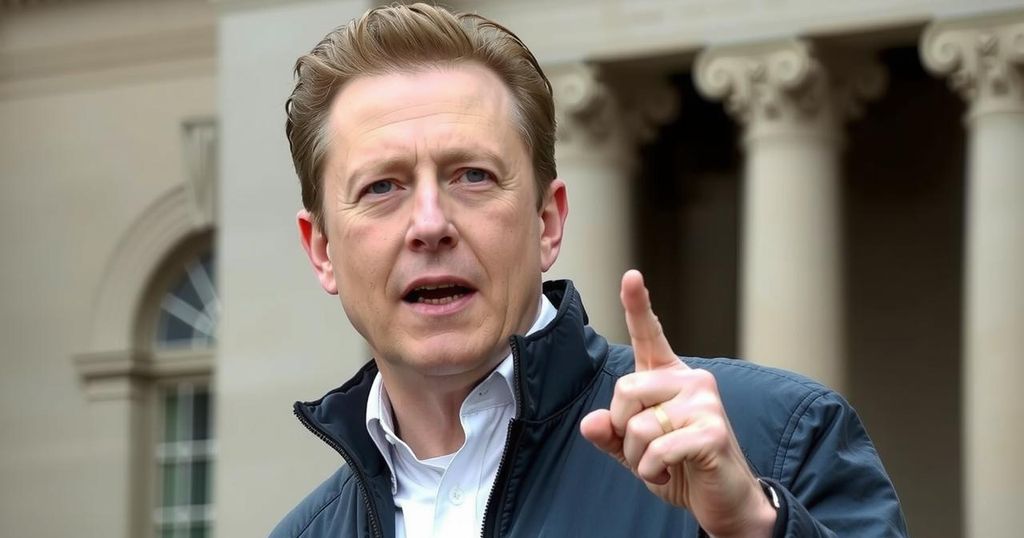Elon Musk’s endorsement of Germany’s far-right AfD party in a newspaper piece has led to controversy, including the resignation of the paper’s opinion editor. Musk claims the AfD offers hope for the country’s economic and cultural future. The piece has triggered debates about free speech and political extremism in Germany, particularly as elections approach.
In a surprising move, technology entrepreneur Elon Musk expressed his support for Germany’s far-right party, the Alternative for Germany (AfD), in a guest opinion piece published in the Welt am Sonntag newspaper. This endorsement has ignited considerable controversy and resulted in the resignation of the paper’s opinion editor, Eva Marie Kogel, in protest. The piece comes on the eve of early elections set for February 23, following the collapse of Chancellor Olaf Scholz’s governing coalition due to economic disputes.
In his commentary, Musk described the AfD as “the last spark of hope for this country,” arguing that the party represents potential for future economic prosperity, cultural integrity, and technological advancement. He defended his position by stating that his investments in Germany provided him a basis for commenting on its societal and political issues. Despite the party’s favorable polling, its leader, Alice Weidel, faces insurmountable obstacles in her pursuit of the chancellorship, given the reluctance of other political parties to collaborate with the AfD.
Musk’s article has sparked a vigorous debate concerning the limitations of free speech within German media. Kogel, who publicly announced her resignation on Musk’s social media platform, X, conveyed her discontent by stating her enjoyment of leading the opinion section until Musk’s piece appeared in print. In contrast, the future editor-in-chief of the Welt group, Jan Philipp Burgard, criticized Musk’s conclusion regarding the AfD’s necessity in saving Germany, despite agreeing with Musk’s initial observations about the nation’s challenges.
The editorial leadership of the Welt group defended the ensuing discourse as emblematic of a healthy democracy, emphasizing the importance of freedom of expression in journalism. Musk, who previously made significant political contributions during the United States’ 2024 presidential election, continues to engage in controversy through his statements and actions, including his defense of the H-1B visa program amid ongoing immigration debates.
Elon Musk’s recent endorsement of the Alternative for Germany (AfD) party, showcased in a guest editorial for Welt am Sonntag, has intensified discussions surrounding the role of influential figures in politics and the implications of their endorsements. With early elections imminent due to the collapse of Germany’s governing coalition, Musk’s commentary arrives at a critical moment. The AfD’s rising popularity poses a challenge for German politics, as mainstream parties are reluctant to collaborate with far-right factions, raising questions about the future political landscape and the integrity of democratic institutions. This incident reflects broader societal concerns about political extremism and the evolving nature of free speech in media paradigms.
Elon Musk’s support for the AfD has stirred significant debate in Germany, highlighting the complexities of political endorsement by prominent figures. The reaction from media professionals—most notably the resignation of Eva Marie Kogel—illustrates the tension between freedom of expression and the responsibility of media outlets in shaping public discourse. As Germany approaches its early elections, the implications of Musk’s commentary on the AfD’s political viability remain uncertain. This situation underscores the critical intersection of technology, politics, and journalism in contemporary society.
Original Source: www.cbsnews.com






